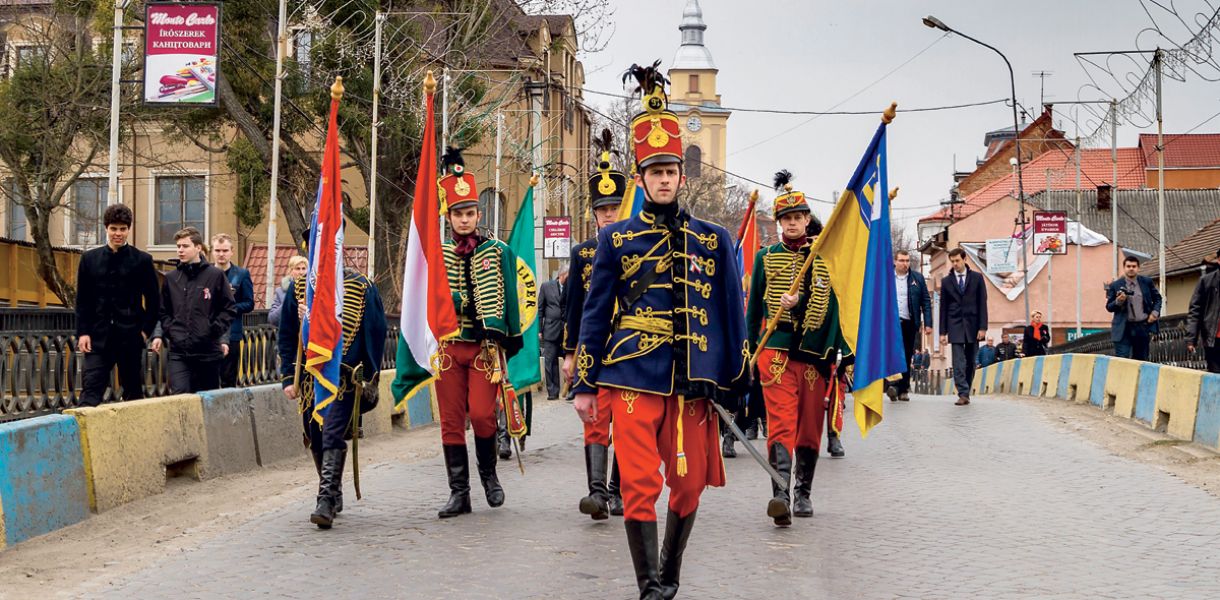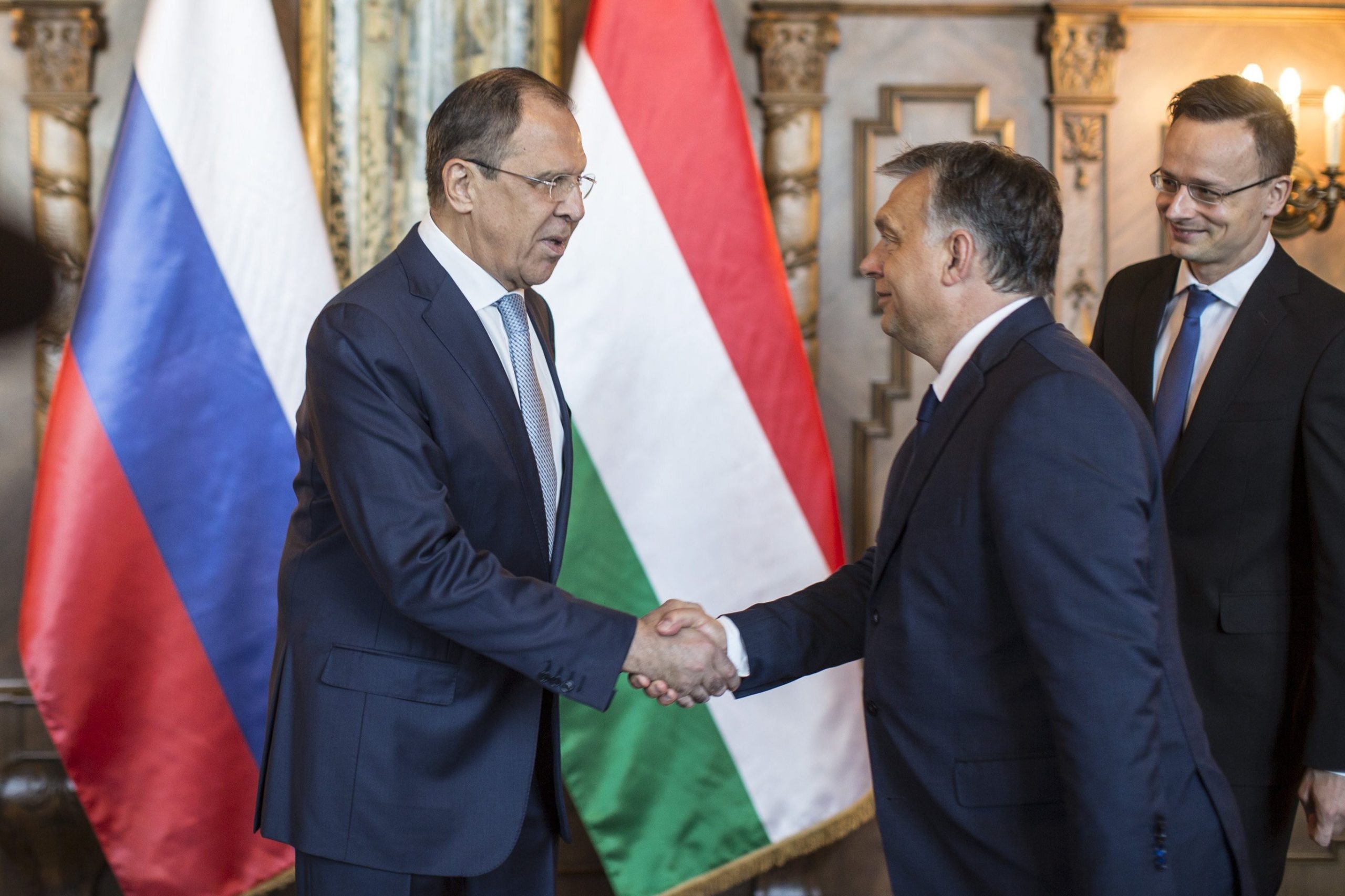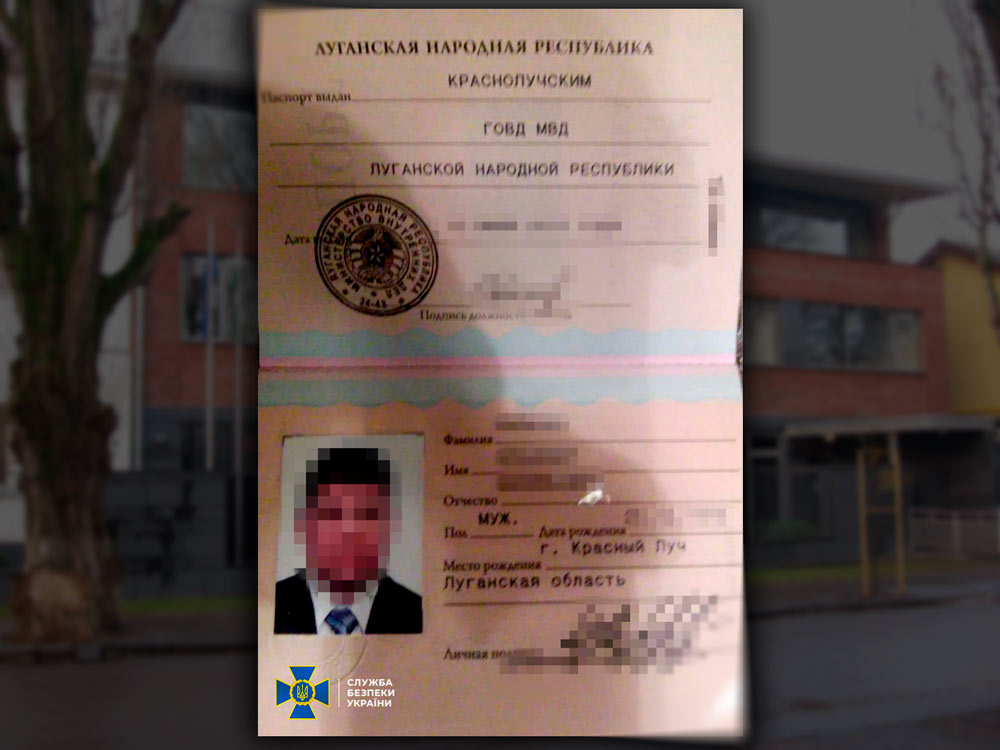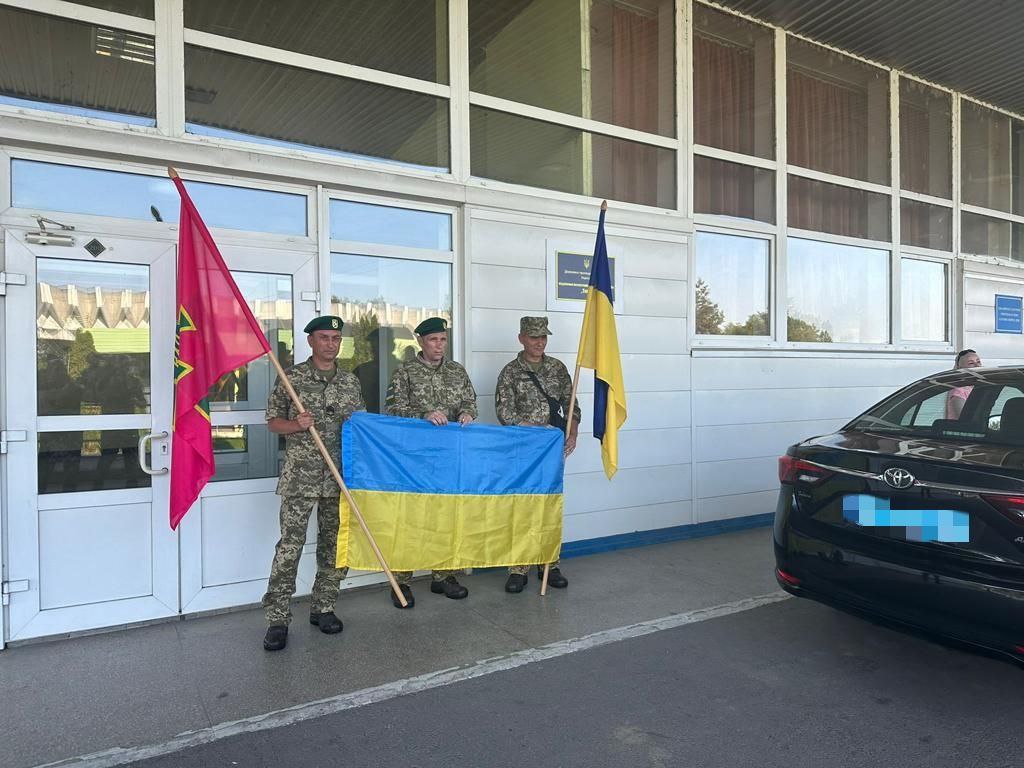Some Hungarian politicians dream of reconstructing the country’s pre-WWII borders. This means incorporating the borderline areas of Austria, nearly one half of Slovakia, a large part of the Ukrainian Zakarpattia Oblast (also known as Transcarpathia), a part of Romania, Serbia, Croatia, and the frontier of Slovenia into Hungaria.
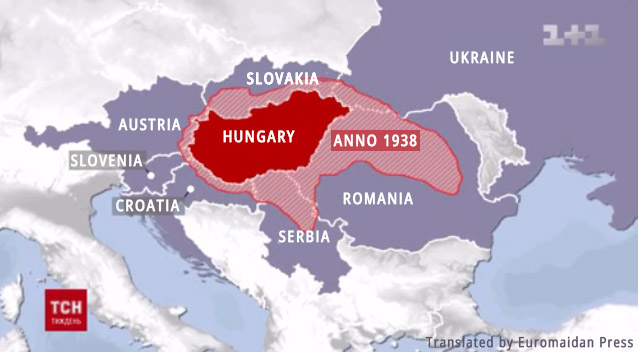
When in 2011 Hungary took up the presidency in the EU, Hungarian officials presented this historical map. Despite the scandal that this caused in the EU, Hungarian politicians haven’t given up on the idea, which is much to the Kremlin’s liking. What should Ukraine expect from Hungary and are fears of Hungarian separatism in its westernmost Zakarpattia Oblast grounded in reality?
The phantom of a Great Hungary
The largest ethnic Hungarian village in Ukraine’s Zakarpattia Oblast, which borders Hungary, is Velyka Dobron. Over 5,500 ethnic Hungarians live there today. In Velyka Dobron all the signs are written in Hungarian and Ukrainian, from street signs to advertising. There are dozens of villages like this along the Ukrainian-Hungarian border. They are in fact culturally autonomous villages. Almost 150,000 ethnic Hungarians live in these villages. Overall, 12% of the population in Zakarpattia Oblast identify as Hungarians. Government officials from Hungary often drop in with visits. The Hungarian government officially provides interest-free loans and grants to the Hungarian speaking residents of Zakarpattia to win their loyalty. This is a new strategy. All the countries bordering Hungary are wary of this subtle game Budapest is playing. The name of this game is Greater Hungary.
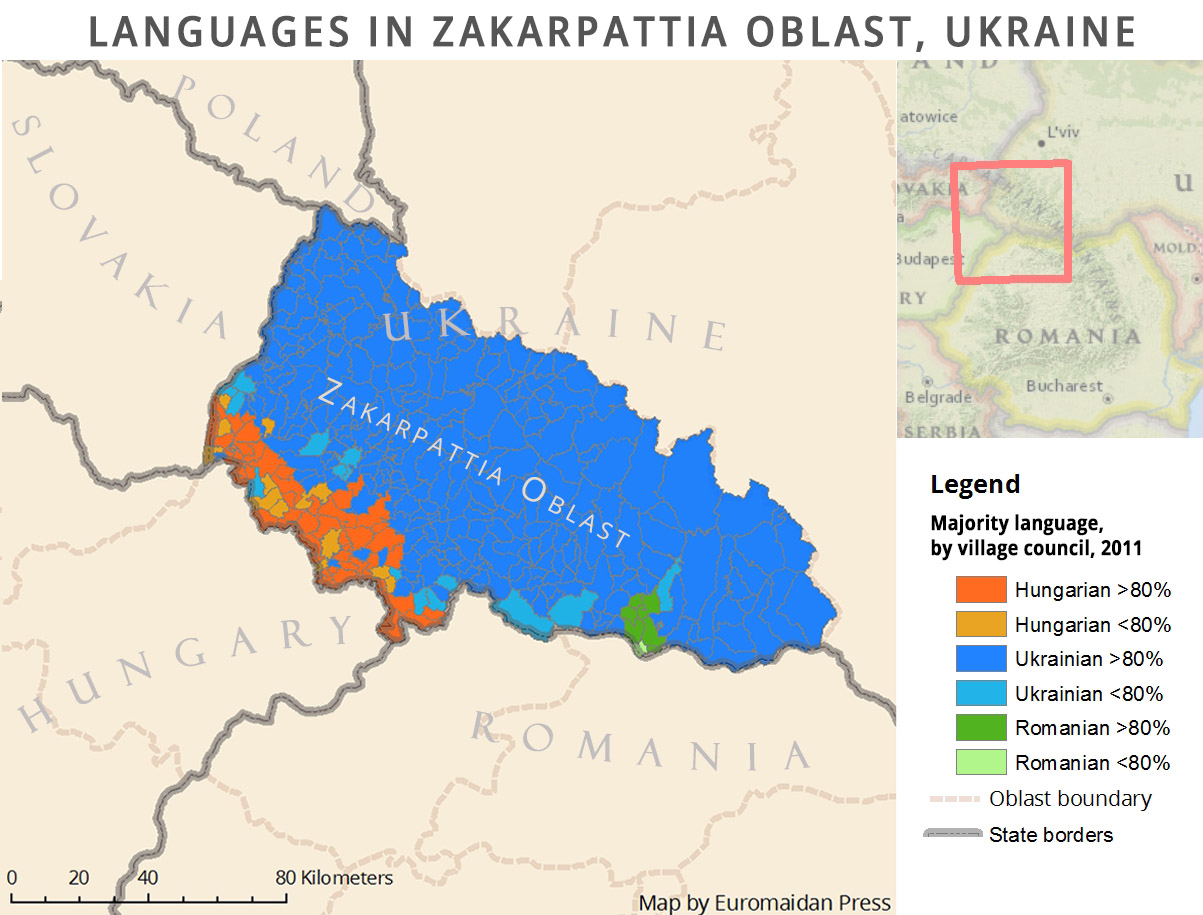
In recent years, official Budapest has been pursuing a policy of providing the residents of Transcarpathia with generous funds for development, along with an active promotion of autonomy for the region. Are these processes connected? And do the ethnic Hungarians really want to separate from Ukraine? Or is this just another example of the same old Kremlin strategy: divide and conquer – insert discord between Kyiv and Budapest; stir up ethnic enmity between Ukrainians and Hungarians.
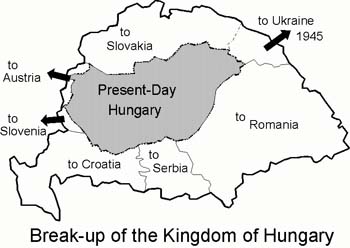 In 1920, at the end of World War I, Hungary was a signatory to the Treaty of Trianon to formally end the war between most of the allies and the Kingdom of Hungary. It regulated the status of an independent Hungarian state and defined its borders. The country lost two-thirds of its territories, including a small part of Ukraine’s modern Zakarpattia Oblast, where some 150,000 Hungarians still live nowadays.
In 1920, at the end of World War I, Hungary was a signatory to the Treaty of Trianon to formally end the war between most of the allies and the Kingdom of Hungary. It regulated the status of an independent Hungarian state and defined its borders. The country lost two-thirds of its territories, including a small part of Ukraine’s modern Zakarpattia Oblast, where some 150,000 Hungarians still live nowadays.
After Viktor Orban became the Prime Minister of Hungary in 2014, government officials in Hungary began to state publicly that the ethnic Hungarians who currently live in Romania, Slovakia, Serbia, and Ukraine deserve autonomy. The Prime Minister himself made similar statements.
“The ethnic Hungarians who live in the Transcarpathia region should be granted dual citizenship and official autonomy,” the Hungarian Prime Minister said. When the Ukrainian Ministry of Foreign Affairs summoned the Hungarian ambassador to file a complaint against the Prime Minister, the ambassador claimed that Orban’s statement had been misinterpreted.
Serhiy Fedak, a professor at the Uzhgorod National University, located in the Oblast center of Zakarpattia Oblast, told that Hungary is promoting its foreign policy interests in Ukraine, but these actions are incomparable to Russia’s actions in the East, naming a recent attempt to set up agitation road signs in the Berehiv and Vynohradiv districts which stated that this is a territory of Hungarian language and that Hungary starts from this place. He considers such agitation as unacceptable. [Ed: the signs were removed and the two Ukrainians are now under trial, being accused of undermining Ukraine’s sovereignty.]
Velyka Dobron village next to Uzhgorod is mostly populated by Hungarians. Despite this, the Head of the village council is Ivan Popka, a Ukrainian. The village lives at the expense of agriculture. The greenhouses where the vegetables are grown were built with grant money the Hungarian government has made available to all the places where ethnic Hungarians reside. Last year Hungary has been providing financial support to the ethnic Hungarians in all the countries that have a border with Hungary.
According to Ivan Popka, Hungary is doing this to keep the ethnic Hungarians in place, in Transcarpathia, to prevent them from going off somewhere else to work. He says there are no territorial claims.
Officially, Hungary is not pursuing a policy of separatism. There is no proof, in the press, or in conversations, that the government of Hungary is seeking to reclaim the territories it once had. It is the far-right Jobbik party in Hungary, which has close ties to the Kremlin that has claims to foreign territory.
As political analyst Dmytro Tuzhanskyi wrote in Yevropeiska Pravda, this party is responsible for holding a “self-determination for Zakarpattia” rally in Budapest on 13 October. Jobbik conducted a similar meeting on 27 March 2014, days after the Russian annexation of Crimea. The initiator of both rallies is the same, Tomas Gaudi-Nagy. In April 2014, he spoke at a PACE session wearing a Tshirt with the inscription “Crimea legally belongs to Russia, Transcarpathia legally belongs to Hungary.” Jobbik never hid its close relationship and collaboration with Russia. Its members were observers at the pseudoreferendum in Crimea.
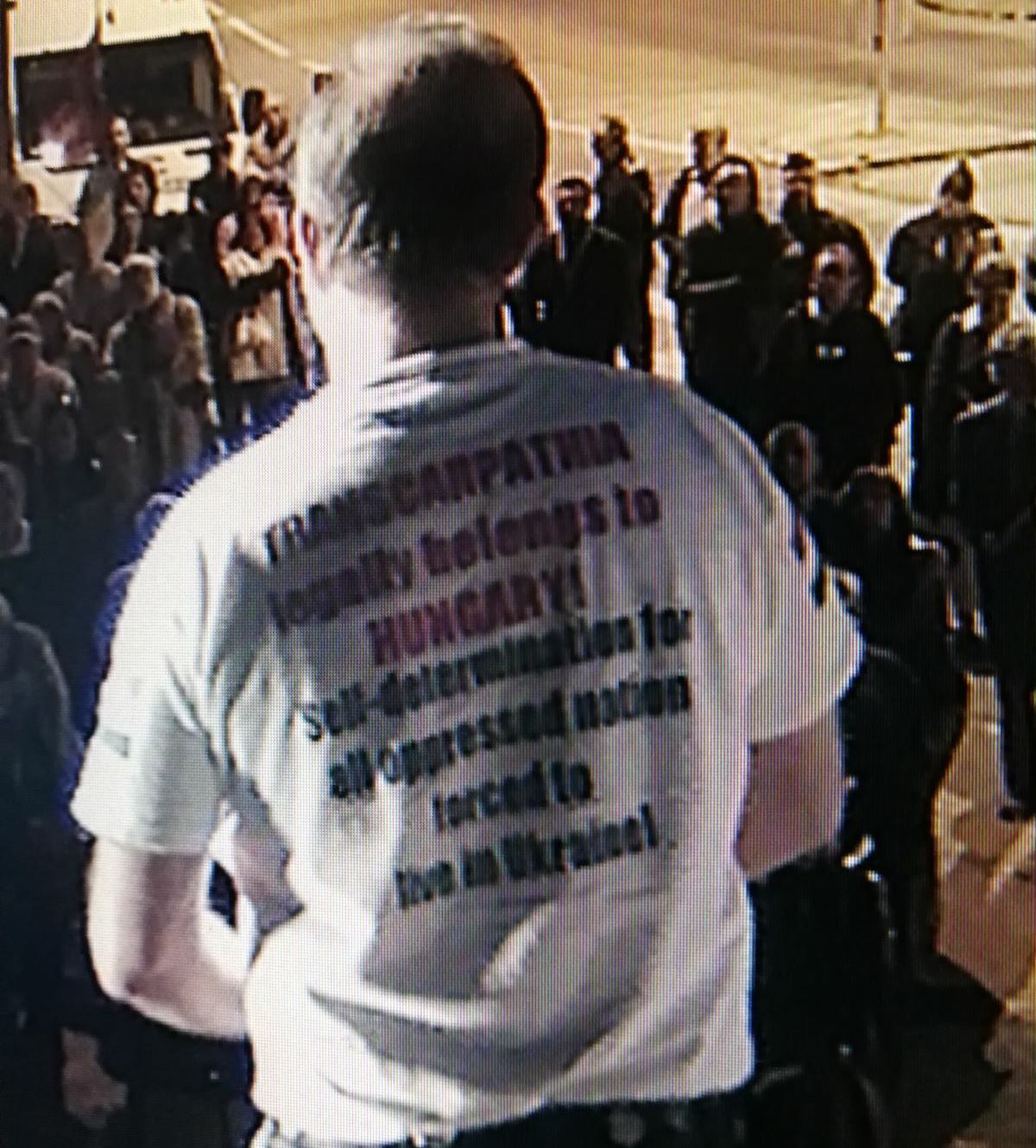
The government, however, is trying to distance itself from Jobbik’s statements, continues Serhiy Halchenko at TSN. The official line of the government is that their intent is to keep the ethnic Hungarians close to Hungary by providing financial support. Kalman Hodor owns a business in Velyka Dobron. This year he received UAH ($7,500) to build greenhouses. One of the conditions under which Hungary provides the assistance is that Kalman must remain where he is for at least the next five years.
Cultural autonomy with dual citizenship
According to Ukrainian political analyst Dmytro Tuzhanskyi,
“Official Hungary promotes an internal autonomy for Hungarians in Ukraine, but it’s important to stress that this is not a territorial autonomy. The Hungarian government insists that Hungarians abroad must insist on a political, cultural autonomy, not a territorial one. At least, for now.”
In addition to providing financial support, he says, Hungary has introduced a policy of dual citizenship for ethnic Hungarians living outside of Hungary. A Hungarian passport could be obtained in practically any village office in the ethnic Hungarian villages in Zakarpattia. Presently Budapest is working hard at persuading Ukrainian officials to permit the ethnic Hungarians of Zakarpattia to have a Hungarian passport.
“Hungary had tried to to implement the same policy in Slovakia and Romania. The governments of these countries responded differently. For instance, Slovakia not only prohibited dual citizenship but also applied a prohibitive fine as a penalty as well,” the political analyst explained.
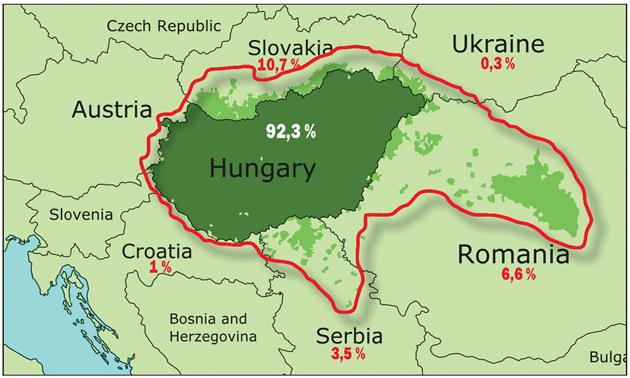
Since 2012, thousands of Hungarians of Zakarpattia received a Hungarian passport while being citizens of Ukraine. Among them are ethnic Hungarians who occupy official government positions. In obtaining a Hungarian passport they swear allegiance to Hungary. It’s difficult telling in whose interests they are now working.
It seems the official policy of Hungary towards Transcarpathia is three-pronged:
- providing financial support to ethnic Hungarians for cultural and educational development;
- promoting the right to dual citizenship;
- supporting the ethnic Hungarians who seek government positions.
According to Budapest, this is the kind of autonomy they are talking about – they are not interested in reclaiming territory. The deputy head of the largest Hungarian party in Ukraine, Josef Bortot confirms this. Of the 64 deputies from his party to the regional council, there were 8 ethnic Hungarians. He himself became the first deputy chairman of the Zakarpattia Oblast Council as well as the Deputy Head of the Hungarian party in Ukraine, KMKS. He says that defending interests without politics is impossible and he rejects any manifestations of separatism.
“We want the Hungarians of Zakarpattia region to be able to preserve their identity, so they will have no reason to emigrate and seek a better life abroad,” said Josef Bortot.
Hennadiy Moskal, the head of the Regional State Administration, has established a very good working relationship with the local Hungarian organizations. He ridicules the television stations that raise the nonexistent issues of separatism and talk of widespread lawlessness. He claims it is the Kremlin that is pushing separatism. Hungary has good intentions, he says.
“Hungary’s policy is clear to us, but not that clear to those who never left their village and have never been to Zakarpattia. Emigration of Zakarpattia Hungarians isn’t economically profitable for Hungary. The country merely helps both Ukrainian and Hungarian villages,” says Moskal.
In the interview with TSN, Moskal said that the Kremlin is constantly working to drive a wedge between Budapest and Kyiv, promoting rallies and conferences where separatism is in the spotlight. One such conference was recently disrupted by the Ukrainian security agents. Professor Fedak and Dmytro Tuzhanskyi support Moskal’s statements about Moscow’s intentions to sow discord between Ukrainians and Hungarians. In Hungary recently, Béla Kovács was detained by the Hungarian state prosecutor. A member of Jobbik, Kovács served as a Hungarian deputy of the European Parliament. He had an office in Zakarpattia Oblast. He is being investigated as an agent of the Russian FSB.
“Budapest’s aspirations for the Hungarian community in Ukraine are interpreted in Russian or pro-Russian media in Ukraine as the intention to create an autonomy or to separate,” said Dmytro Tuzhanskyi.
As Hungary is a member of the European Union and NATO, the issue of separatism is not the problem. The problem lies within Ukraine. Ukraine lacks its own policy in how to handle the situation in Transcarpathia.
There is no program in place which would provide the ethnic Hungarians with the opportunity to learn the Ukrainian language. The ethnic Hungarians go to Hungarian schools and Hungarian libraries; they read Hungarian publications. If they want to learn Ukrainian, they have to do that on their own, by hiring a tutor. So it’s not the Hungarians who are the problem, it is the Ukrainians. Ukraine has no federal policy, no national strategy to provide opportunities for those ethnic Hungarians who want to learn the Ukrainian language. Ukraine is not taking advantage of a valuable resource: the Ukrainian-Hungarians. It seems the government of Ukraine is voluntarily creating all the conditions required for Hungarian political autonomy to take root in Transcarpathia.
Related:
- Ukraine’s law enforcers bust gang plotting to blow up Hungarian monuments
- Experts weigh in on Ukraine’s hotly debated new minority language policy
- Ukraine’s new education law unleashes international storm over minority language status
- Spoiling Ukrainian-Polish relations: next phase in Kremlin’s hybrid war

